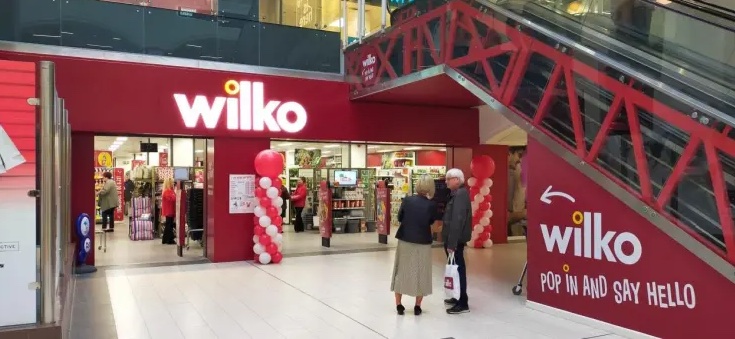Who are the frontrunners in the race to save Wilko?

Why did Wilko go bust?
A cocktail of dwindling demand for physical stores and competition in the discount market appeared to tip Wilko into administration. Even when a squeeze on public finances forced shoppers back to the high street in search of cheaper goods, they seemed to favour rivals B&M and Poundland when nabbing a deal.
The company had tried its best to stay afloat – it tapped capital market firm Hilco for fully £40m over the past year. The family-owned business even looked to explore a change of ownership for the first time in the brand’s history in efforts to keep the store alive.
Ultimately, this was not enough and Wilko called in administrators earlier this month, placing over 12, 000 jobs at risk. A bidding process, which remains ongoing, was then launched allowing parties to make offers for parts of or all of the business.
Who? M2 capital
The private equity company was a latecomer to the race for the embattled high street brand. M2, which is a Anglo-Canadian restructuring specialist, currently does not own any retail assets, however it does own a string of luxury hotels under the Como brand.
One of M2’s lead managing directors Robert Mantse was once an M&A pro at PwC’s Russian arm – the global ‘Big Four’ accountancy firm now heading Wilko’s administration process.
What do they want?
The firm has promised to keep all Wilko jobs intact for two years if they are successful in their reported £90m acquisition of the brand. The company also wants to retain the brand’s 400-strong estate.
As the race to secure the company continues to play out, the firm has hit out at PwC criticising whether or not its administration process was “fair and transparent”.
According to reports in the Financial Times, Mantse accused PwC of repeatedly “adding additional criteria to try to force M2C to not continue in the bidding process”.
However these claims have been rebuffed by PwC.
A PwC spokesperson told City A.M: “We wholeheartedly reject the assertions and characterisations in this open letter. We are running a fair and transparent sales process, and remain focused on our duty to secure the best outcome for creditors as a whole, while preserving as many jobs as possible.”
Who? Doug Putman
The Canadian businessman is no stranger to a rescue deal having previously snapped up the beleaguered record and music merchandise retailer HMV for just £883,000 in 2019.
Putman also made an 11th-hour bid for the struggling retailer, placing a multi-million pound offer for the struggling Pick n Mix to garden furniture seller.
What does he want?
He is looking to retain around 350 of Wilko’s estate meaning that if he is successful in his endeavour some jobs may be lost.
Compared to M2 Capital, the 39 year old appears to have a better foothold in the world of retail, especially when it comes to brands desperately in need of a revival.
In 2021, Putman purchased Toys R Us Canada from Fairfax Financial Holdings Limited. It followed a rocky period for the children’s store who a few years prior had found itself in the debts of a Chapter 11 bankruptcy.
What happens if there are no winners?
“With reported last minute bids from M2 Capital, and HMV’s Doug Putman, it seems there is appetite to invest in turning the ailing Wilko brand around,” Jonathan De Mello, founder of JDM Retail, told City A.M said.
“In either scenario, both acquiring businesses would seek to retain the bulk of the store portfolio – M2 say they will retain all 400 stores, whilst Putman has talked about retaining circa 350.”
But De Mello said that while retaining a high number of stores would be a positive for workers, it may not be the best option for the business.
“[350-400] stores is too many to retain, given Wilko will have a significant tail of low contribution stores.”
“The administrator will be under significant political pressure to accept one of these bids – but it is important that fair value is achieved for all stakeholders,” he added.
De Mello predicts that if no bid is made then most stores will likely close, with competitors picking up small parcels of stores instead.